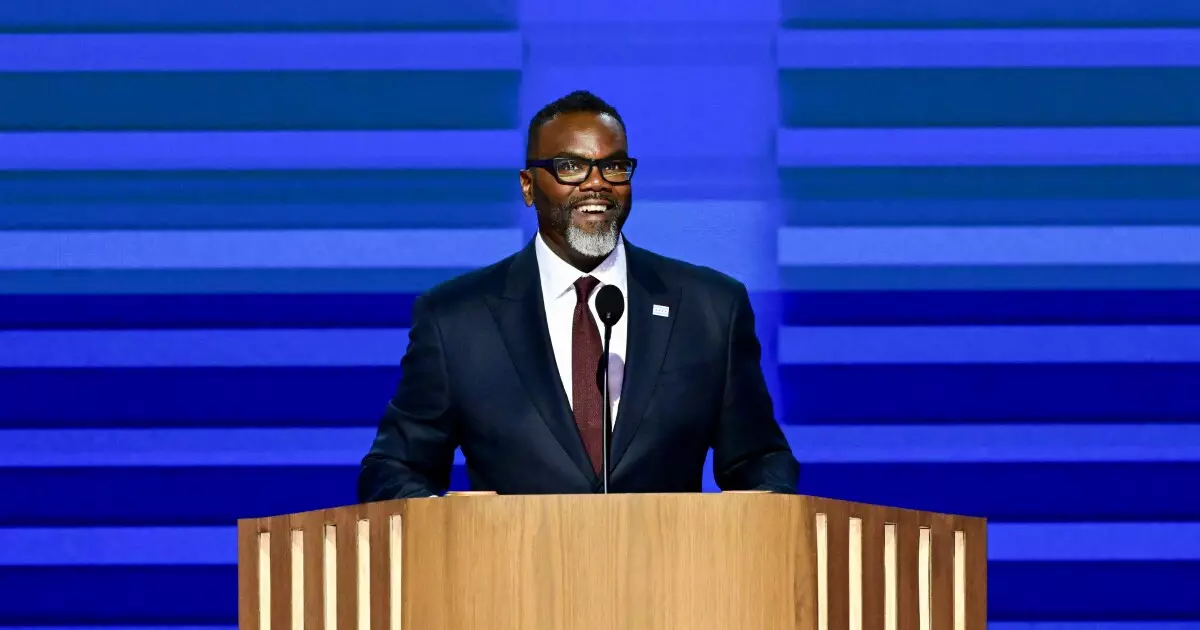Chicago, a city known for its iconic skyline and diverse culture, now grapples with significant financial challenges that have drawn scrutiny from rating agencies. Kroll Bond Rating Agency (KBRA) recently placed the city’s general obligation bond rating on a Watch Downgrade status, an indication of potential deterioration in its creditworthiness. This action coincides with the City Council’s impending vote on a proposed $300 million property tax increase, pitched by Mayor Brandon Johnson as part of a larger effort to address a staggering $982.4 million shortfall projected for the corporate fund in 2025.
At the heart of this financial predicament lies the city’s reliance on financially precarious strategies to patch budget deficits. KBRA expresses concerns that the city is leaning heavily on one-time solutions rather than establishing sustainable funding mechanisms. This is particularly alarming given the economic volatility that threatens the revenue sources upon which cities like Chicago heavily depend.
Another pressing issue is the mounting burden of pension payments, which threatens to consume a growing share of the city’s corporate fund, leaving less available for essential services. The dire pension situation reflects not just the immediate fiscal challenges but also the long-term systemic issues that Chicago faces in maintaining a balanced budget. As KBRA cautions, there is a risk that the city will find itself constrained by these obligations, unable to invest in infrastructure, public safety, or other critical areas.
Moreover, the current fiscal landscape has been exacerbated by the late initiation of the budget process this year. In light of a projected shortfall of nearly a billion dollars, stakeholders are understandably anxious about the adequacy of the plans put forth by city leadership. This concern is compounded by the fact that KBRA has left the window open for reevaluation of the watch status early in the new year, depending on whether the city can solidify a credible budget that genuinely addresses its structural financial issues.
One of the most contentious aspects of the proposed budget is the introduction of the property tax increase, which contradicts Mayor Johnson’s earlier campaign promise to refrain from raising property taxes. This proposed hike, however, has gained a notable endorsement from several rating agencies such as Fitch Ratings and S&P Global, which view it as a necessary step towards generating a continuous revenue stream. They argue that the tax increment would be a “meaningfully large down payment” against the city’s considerable structural budget gap.
In a significant turn of events, recent reports indicate that the tax proposal may be reconsidered. With considerable pushback from alderpeople—29 of the 50 signed a letter demanding a separate vote on the issue—the administration is now weighing alternative strategies such as reallocating federal stimulus funds. These developments highlight not just the contentious political atmosphere in the City Council but also underline the urgent need for consensus on how to handle the city’s alarming financial condition.
As KBRA emphasizes, Chicago must address the structural deficit without resorting to temporary fixes. The agency warns that continued dependence on non-recurring revenue sources contributes to a cycle of fiscal instability, potentially leading to greater deficits in future years. This sentiment is further echoed by observations indicating that a delay or failure in passing a responsible budget by December 31 could have serious repercussions for Chicago’s financial credibility.
The budget stabilization fund, designed to act as a buffer against fluctuating operating expenses, also faces scrutiny. KBRA pointedly notes the importance of adhering to established financial policies to ensure that the city’s economic health remains viable. Lapses in maintaining this fund, alongside non-compliance with pension funding requirements, could further undermine Chicago’s fiscal standing.
The forthcoming period is critical for Chicago. As the mayor and City Council navigate the complex financial landscape, stakeholders will be closely watching for a budget resolution that effectively tackles the city’s fiscal shortfall. A strategic approach that prioritizes long-term funding solutions, alongside prudent management of existing resources, will be essential in restoring confidence among rating agencies and residents alike.
While Chicago currently maintains a stable outlook from Fitch and a positive outlook from Moody’s, concern remains palpable. The city’s leadership must adopt a forward-thinking approach to budgeting and financing—one that eschews temporary fixes in favor of robust, sustainable initiatives that can help navigate these turbulent financial waters. Only through collective will and decisive action can Chicago hope to emerge from this financial crisis with its integrity—and its reputation—intact.


Leave a Reply